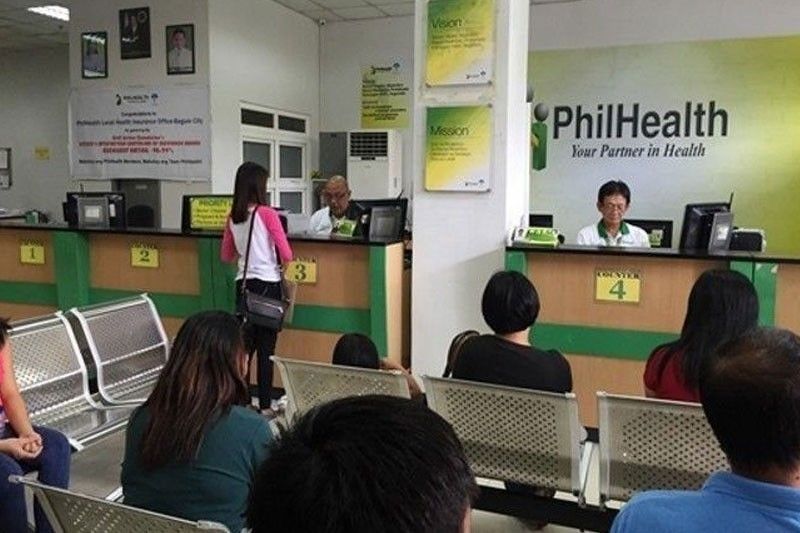Senators question PhilHealth funding

MANILA, Philippines — Senators are poised to question the Philippine Health Insurance Corp. (PhilHealth)’s need for more funds in the 2025 national budget despite its surplus funds, when the Senate tackles the Department of Health (DOH) budget for next year.
Sen. Sherwin Gatchalian said the main question for PhilHealth officials is about the surplus funds or fund balance, including the P89.9 billion “savings” transferred to the national treasury to finance other government projects.
“In 2024, we put P61 billion (in PhilHealth). They said that they did not spend it and the P89 billion would be returned to the national treasury. But in 2025, they will put in another P70 billion,” Gatchalian said yesterday in an interview with dzBB. “It is counterintuitive. It seems that what they are doing is not consistent. So check it carefully.”
He added: “If they have not spent the money (in 2024), why would we give (funding) again for 2025? We know they have problems implementing (programs) and spending money, and that is what we want (to clarify).”
Sen. Grace Poe, chairperson of the Senate committee on finance, also noted that despite having unutilized funds that were transferred to the National Treasury, the previous administration chose to take out loans.
“We had money, but we borrowed and owed money. Pretend I have a budget at home. I have P10,000 in the bank. Now, I have to pay my employees P3,000. So, instead of taking it from the bank even though I had money there, I borrowed,” Poe explained.
“So now that there is something else that has to be paid, I will now use the money that is stored in the bank there because that is where it should have gone in the first place,” she added.
Gatchalian noted that he would personally focus on the subsidies, which are given by the national government to expand the number of PhilHealth members but has not been done.
He said in some instances, government agencies request funds without considering their absorptive capacity or their capacity to spend, or if the money they were asking for is too much.
“So we should really take the details and carefully examine their request this coming 2025. But I agree that this should be carefully examined and if it is not necessary, let’s put it somewhere else,” Gatchalian said.
The senator said during the budget hearing he would ask, “why they (PhilHealth) are spending money slowly. When I looked at their financial standing in 2022, and 2023 they really have too much money that has not been spent, in two years. So that’s what I want to bring up when it comes to the budget hearing of the DOH.”
Poe also said that with its increasing net income annually, PhilHealth should now shoulder the remaining payables of the government to health workers.
“We can now allocate the funds properly as they should have been from the start. These should have been contingency funds for health-related eventualities,” Poe said.
Finance Secretary Ralph Recto recently said that PhilHealth was not responsible for the emergency allowances for frontline workers, which was settled by the national government. As a result, the reserve funds were not used.
“The National Government shouldered it. PhilHealth did not spend for a single vaccine. PhilHealth did not spend for a single frontline worker. The emergency fund of PhilHealth is precisely for something like a pandemic but it was not spent. It was the past administration’s decision to borrow the money,” Recto said.
Budget Secretary Amenah Pangandaman reported that out of the P89.9 billion in unutilized subsidies from PhilHealth, P27.5 billion has been released to settle overdue claims for over five million COVID-19 health workers.
Net income to hit P61 billion
Recto pointed out that at the end of 2024, “PhilHealth’s net income will reach P61 billion.”
Records showed the income of PhilHealth has steadily increased since 2019. During that year its income was P4 billion; in 2020, it increased to P30 billion. Its income further went up to P48 billion in 2021, and P79 billion in 2022. Last year, PhilHealth earned P173 billion.
With growing earnings and continued government subsidies, Recto said PhiHealth will have more than enough funds to cover the rollout of new benefits for this year.
Recto said that consistent with the medical principle of “first do no harm,” the use of PhilHealth’s sleeping funds will not affect the benefits of its members, nor its plans to expand the benefits this year.
“The benefit packages for PhilHealth members will be increased this year by more than 30 percent. Then for serious diseases like breast cancer, which is now given 100,000 pesos, it will be increased to 1.4 million. And there are many others,” Recto said in an interview with dzBB.
“PhilHealth’s benefits will increase, and even if it increases, PhilHealth’s income is still large, and what we have taken here is not from members’ contributions; it is from government subsidies,” he said.
“In fact, next year the government will give another 70 billion to PhilHealth. Enough is enough, the benefits will increase,” he said.
Recto said PhilHealth had over half a trillion pesos in its coffers, enough to cover two to three years of its expenses.
“By the end of this year, the PhilHealth fund will be P550 billion. Even if it is two or three years, that fund will be enough,” he said.
Recto noted that the P20 billion of the P89.9 billion excess funds of PhilHealth initially transferred was used to cover the health emergency allowances of health workers and frontliners.
He added that another P20 billion will be transferred on Aug. 21 which will not just cover key infrastructure programs but health and education initiatives as well.
Aside from PhilHealth, Recto said unused funds from other government-owned and controlled corporations were also returned to the national treasury.
A petition has been filed with the Supreme Court, seeking to declare as unconstitutional the Department of Finance circular and a provision in the 2024 General Appropriations
Act on which the circular was based, which allowed the impounding of “savings” of all GOCCs for diversion to unprogrammed appropriations in the GAA – the new version of the congressional pork barrel.
The provision was inserted during the bicameral conference on the GAA. The petitioners say this is an illegal “rider” in the GAA that effectively amends all laws creating each GOCC including PhilHealth.
The impounding of PhilHealth funds also violates the Universal Health Care Act, the petitioners point out.
Last week, the Supreme Court ordered concerned agencies and officials to comment on the petition.
- Latest
- Trending
































